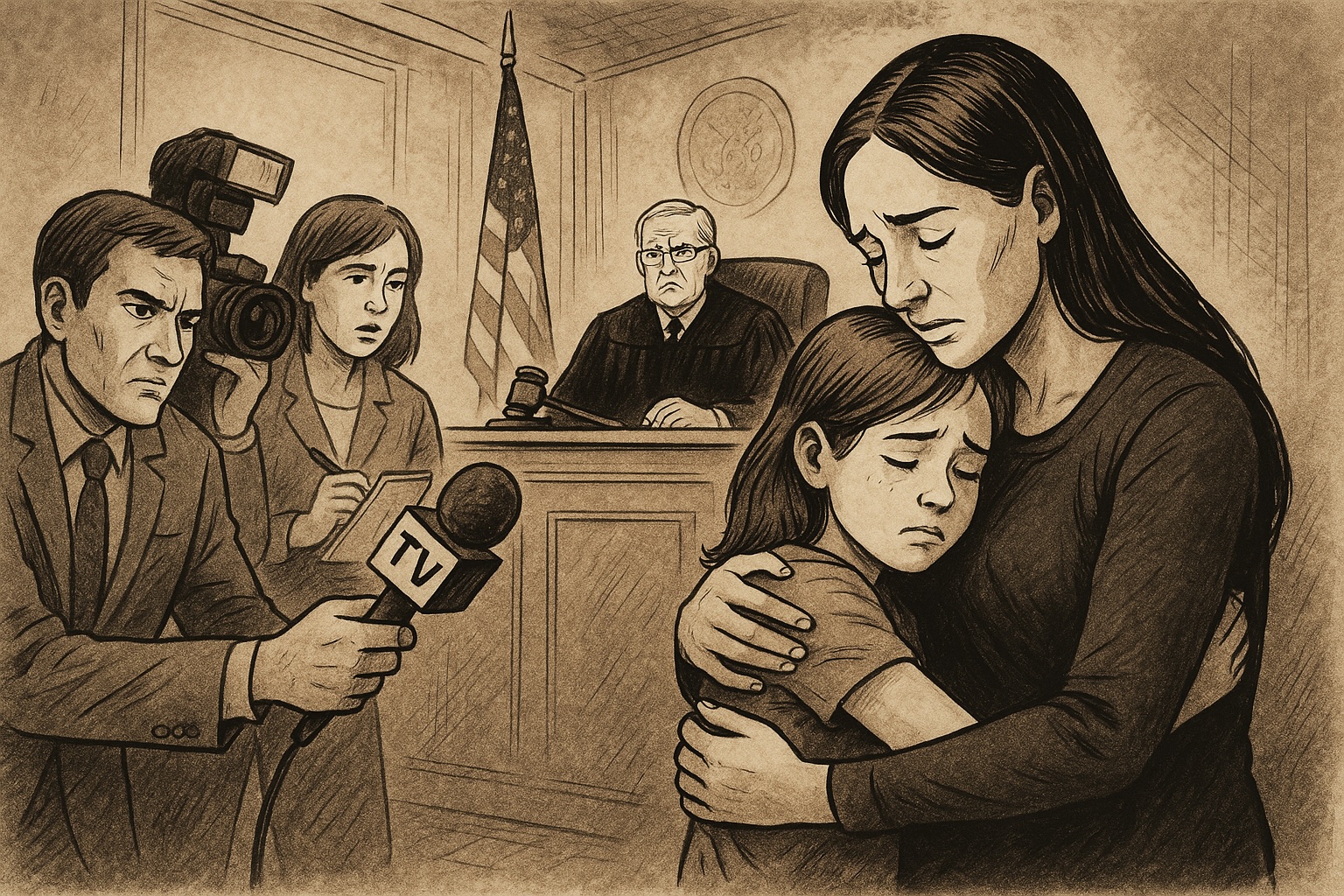📰 Kayden’s Law Strengthens Child Protection in Domestic Violence Custody Cases
Kayden’s Law, named after a child killed during unsupervised custody, strengthens VAWA and mandates safety considerations in custody proceedings in domestic violence cases.

Family courts often walk a delicate line between parental rights and child safety. But when domestic violence is involved, children are uniquely vulnerable to harm — sometimes with fatal consequences.
Kayden’s Law, named after 7-year-old Kayden Mancuso of Bucks County, was enacted after her tragic death during an unsupervised court-ordered visitation with her father, who had a documented history of violence.
The law, signed into federal statute as part of the Violence Against Women Act (VAWA) reauthorization in 2022, ensures that child safety is paramount in custody cases involving domestic violence. By requiring courts to consider abuse history before granting unsupervised visitation, Kayden’s Law closes dangerous loopholes that have cost children their lives.
The Tragic Case Behind the Law
In 2018, Kayden Mancuso was murdered by her father during a court-approved unsupervised visit. Despite warnings from her mother and evidence of the father’s violent past, the court granted him access. The case shocked Pennsylvania and the nation, sparking calls for urgent reform.
Her death became a catalyst for legislation that now requires courts to prioritize child safety above all else in custody disputes.
What Kayden’s Law Does
1. Limits Unsupervised Visitation
Judges must withhold unsupervised visitation for parents with histories of:
Domestic violence
Child abuse
Sexual assault
Coercive control
2. Mandatory Consideration of Abuse Evidence
Courts are legally required to:
Review police reports, restraining orders, and prior convictions.
Evaluate risks of psychological harm and coercive control, not just physical violence.
3. Strengthens Judicial Accountability
Judges must document their reasoning if they grant custody or visitation in DV-related cases.
Decisions can be reviewed if they fail to consider evidence of abuse.
4. Prioritizes Child Safety Over Parental Rights
Previously, many courts emphasized shared parental access. Kayden’s Law shifts the focus, ensuring that a child’s right to safety outweighs a parent’s right to access.
Why Kayden’s Law is Significant
Closes Custody Loopholes: Prevents courts from overlooking violent histories.
Raises Judicial Awareness: Requires training for judges on DV dynamics.
Centers Survivor Voices: Validates the concerns of protective parents, who are often dismissed in custody disputes.
National Model: Though born in Pennsylvania, Kayden’s Law influences family courts across the U.S.
Impact on Survivors and Families
Protective Parents: Survivors of domestic violence now have stronger grounds to shield their children from unsafe visits.
Children: Reduced exposure to abusive or coercive parents, minimizing trauma.
Courts: Judges are held accountable for custody decisions, ensuring transparency.
Communities: Increased awareness that domestic violence is not just about partners — it deeply impacts children.
Community & Advocacy Response
Organizations such as Women Against Abuse, Philadelphia Legal Assistance, and the Pennsylvania Coalition Against Domestic Violence championed the legislation. Survivor advocates stress that Kayden’s Law is not anti-parent — it is pro-child safety.
The law has also inspired public education campaigns, reminding families that domestic violence is not only a private matter but a public safety issue with generational consequences.
Conclusion
Kayden’s Law represents a turning point in how courts handle custody cases involving domestic violence. By centering child safety and mandating judicial accountability, Pennsylvania and the U.S. are taking a powerful step to prevent future tragedies like Kayden’s.
Every child deserves the right to grow up free from violence. Kayden’s Law helps make that right a reality.
FAQs
1. What is Kayden’s Law?
A custody reform law requiring courts to prioritize child safety in domestic violence cases.
2. Why was it enacted?
It followed the murder of 7-year-old Kayden Mancuso during unsupervised visitation with her abusive father.
3. What does the law change?
Judges must consider abuse history before granting unsupervised visits or custody.
4. How does it protect children?
It limits abusers’ access, ensures safety evaluations, and strengthens court accountability.
5. Where is it applied?
Pennsylvania family courts and nationwide as part of the VAWA reauthorization.
